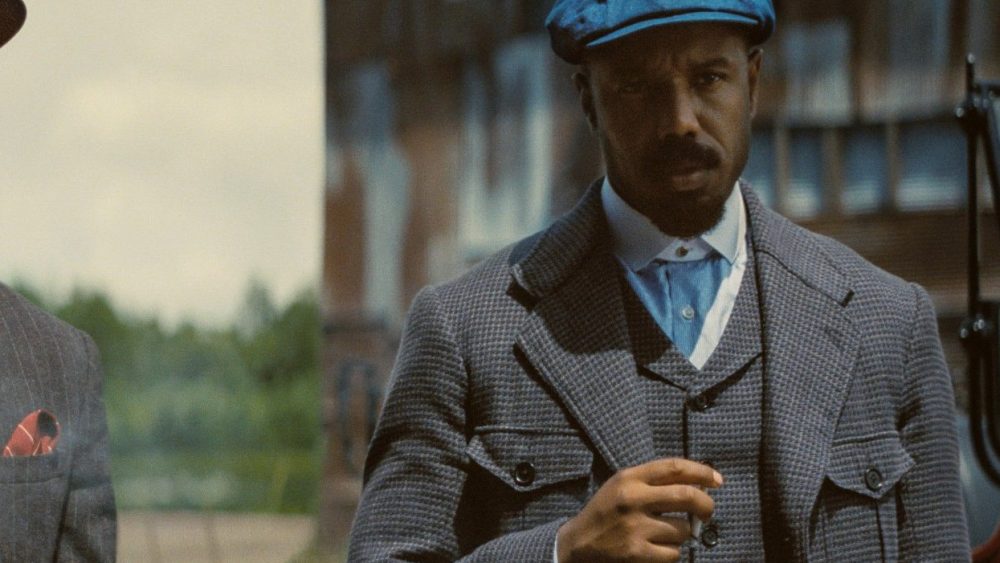Ryan Coogler’s ‘Sinners’ Deserves Best Picture and Director Oscar Nods
This year, the Oscar season prayer has a name, and it is “Sinners.”
With “Sinners,” writer-director Ryan Coogler, one of Hollywood’s most quietly seismic forces, steps into a genre long neglected by the Academy, and once again, reshapes the game. A slow-burn psychological horror film, “Sinners” is not just a pivot for Coogler — rather, it’s a proclamation.
For more than a decade, Coogler has been Hollywood’s quiet revolutionary — symbolizing, for the Black community, a figure akin to our very own Christopher Nolan. From chronicling the final hours of Oscar Grant’s life in “Fruitvale Station,” to reviving the “Rocky” franchise with “Creed,” to breaking barriers with the cultural juggernaut “Black Panther,” Coogler fuses personal and political storytelling with mass appeal like few others.
Now comes “Sinners,” a certified box-office hit and critical darling that stands to redefine both Coogler’s career and the Academy’s stale boundaries around horror. And if there is any justice, it will carve his name into the shortlist of Black directors ever nominated for best director — an elite, shamefully small list that includes John Singleton, Lee Daniels, Steve McQueen, Barry Jenkins, Jordan Peele and Spike Lee.
Horror has always been the poor stepchild of the Academy, too loud, too bloody, too weird. “Psycho” (1960) and “Rosemary’s Baby” (1968) were snubbed when they should have reigned. Only the rare monsters, such as the best picture winner “The Silence of the Lambs” (1991) and the original screenplay victor “Get Out” (2017) — ever broke through. But in a post-“Substance” world, where body horror can earn five nominations, “Sinners” feels less like a gamble and more like a moment.

©Warner Bros/Courtesy Everett C
Michael B. Jordan, Coogler’s longtime muse, delivers a career-defining double turn as twin brothers Smoke and Stack, performances that feel so distinct, so alive, that it’s hard to believe they share a body. Jordan, overlooked shamefully for “Fruitvale Station” and “Black Panther,” now demands Oscar attention. Alongside him, newcomer Miles Caton tears through the screen as Sammie “Preacher Boy” Moore, evoking the gritty charisma that once catapulted Daniel Kaluuya into the mainstream.
Delroy Lindo, one of the most overdue actors in Hollywood, brings a thunderous soul to Slim, a performance that deserves his own set of flowers, especially following his egregious snub for “Da 5 Bloods” (2020). Surrounding them is an ensemble crackling with life: Jack O’Connell, Wunmi Mosaku, Jayme Lawson, Li Jun Li and Hailee Steinfeld. It’s the kind of cast that should force the SAG Awards to clear space in its top category, the kind of ensemble that validates the Academy’s brand-new best casting Oscar. And casting director Francine Maisler would be an ideal first honoree.
Early-year releases like “Dune: Part Two” (2023) and “Past Lives” (2022) remind us that greatness isn’t seasonal, and “Sinners” could ride a wave. “Black Panther’s” own Oscar triumph began in February, proof that the calendar is no longer king, as long as the quality can back it up.
Coogler’s exceptional set of artisans — production designer Hannah Beachler, costume designer Ruth E. Carter, composer Ludwig Göransson — reunite here like a holy trinity. And for Carter and Göransson, a rare Oscar winning hat trick could be in their future.

Warner Bros.
Then there is the glow of Autumn Durald Arkapaw’s cinematography, each frame soaked in unease and tragic beauty of the 1930s. Her luminous framing dazzles, as seen in “Teen Spirit” and Emmy-nominated for TV’s “Loki,” and she delivers stunning work that could finally result in a woman taking home best cinematography. Only three women have ever been nominated: Rachel Morrison (“Mudbound”), Ari Wegner (“The Power of the Dog”) and Mandy Walker (“Elvis”). Skeptics wonder if we’ll see a woman win in our lifetime; after seeing “Sinners,” I believe the answer is yes.
What “Sinners” accomplishes is deceptively radical. It treats horror not as shock, but as soul. It asks its audience not simply to fear, but to feel. It stands at the intersection of survival and memory, a film as political as it is personal, as haunted as it is human. And all blended with the red-eyed vampire spirit that haunts the characters on screen.
For Coogler, Oscars are never the endgame. They are, at best, a byproduct of doing the harder thing: telling stories that challenge the world to look harder, love deeper, and survive longer. “Sinners” doesn’t ask for the Academy’s vote. It demands a reflection. For some of us, it’s one of the films by which this year should be judged.
Ryan Coogler has never stood still. Why would he start now?


